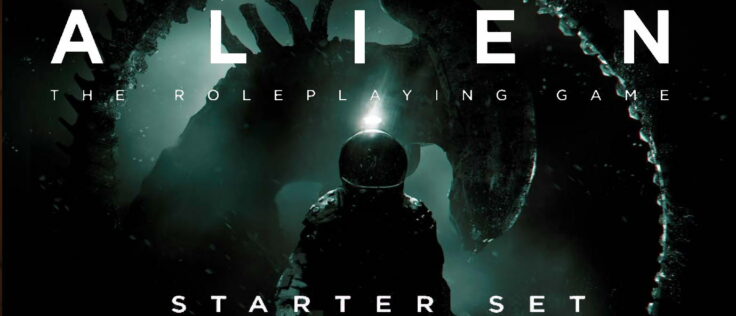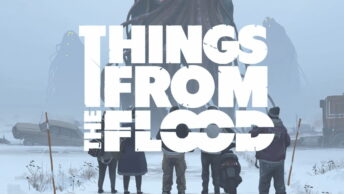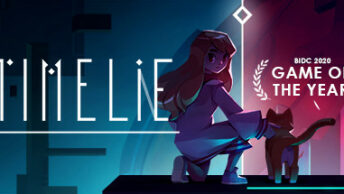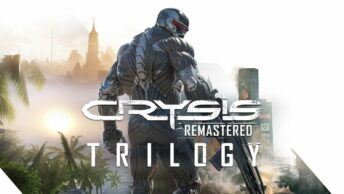A box of pure horror
Free League
Genre: Tabletop RPG
Developer: Free League Publishing
Publisher: Free League Publishing
Release date: 1 October, 2020


Alien and Aliens, arguably two of the most influential horror and sci-fi movies of all time. Yet despite having influenced countless games, both physical and digital, there’s not been many tabletop RPGs set in their universe. There’s been a few home-brew games, but to my knowledge this is the first time there’s been an officially licensed Alien RPG since the notoriously complex ALIENS Adventure Game from 1991.
The Alien starter set is a box (or a collection of PDFs) containing the basics for the RPG, meant as an introductory set for the game. As is the norm with starter set it contains a cut down rulebook with the essentials, a starter adventure, a couple of pre-made characters and some other aids. The physical release also comes with 20 themed dice. There are also versions of it for two virtual tabletop platforms, Roll20 and Foundry. The game was tested in part with the help of the Roll20 module. A review for the main rulebook will come soon.
As the included adventure, Chariot of the Gods, can be bought separately, it will receive its own review, though it’s factored into the review score here.

What’s in the Box?
The box contains quite a few things. Most importantly is a slimmed down rulebook that’s 104 pages (the core rulebook is 392 pages) and a 48 page adventure called Chariot of the Gods. The books are printed on relatively thick paper and the printing quality is, as is the norm with free league stuff, excellent. There are also 20 dice, 10 of them black with the six replaced with a crosshair, and 10 yellow with the 6 also having a crosshair and the 1 having a facehugger symbol. These are just 6-sided dice, although they do feel like higher end dice. The corners are a bit sharper than the cheap chessex dice that a lot of people (author of this review included) use and the numbers are also more deeply recessed than what’s common cheaper dice and the paint application seems to be spot on. There’s also a large (about 86x56cm/34×22 inch) double sided map, one side showing the area of space colonized by humanity as well as who controls what region, and the other shows a ship plan for the ship from Chariot of the Gods, though it could quite easily be used for any other adventure set on a space ship of a similar size. For the included the adventure there’s 5 character sheets and a deck of cards with gear, NPC stats and hidden player objectives as well as 10 cards marked from 1-10 that are used to track combat initiative. Finally there’s a sheet of 84 cardboard counters, most of which have a motion tracker blip on one side, and a character or a xenomorph on the other as well as some counters used for space combat (something that there are no rules for in the starter set). Apart from the dice these are all in the PDF version of the starter box as well.
The Setting
The year is 2180, one year after Hadley’s Hope was destroyed by a thermonuclear detonation. Humanity has spent the last 141 years colonizing new worlds and spreading across the galaxy. Thanks to advances in terraforming technology and the discovery of faster than light travel humanity has been able to settle planets far from earth, that at first glance might seem ill suited for life, in order to mine their riches.

Life in the colonies is not easy. While a few prosper, many more are barely scraping by. A lot of people become colonists due to the promise of a better life than they’re currently living, but once they get there they find that things are not as glamourous as they expected. They might have a patch of land to call their own, but food is scarce and entertainment even more so. For many the colonies become almost like prisons.
There are a few powers who vies for control over space. The Three World Empire consists of the former United Kingdom, Japan and a few smaller nations, the United Americas was formed in an attempt to compete with the growing Three World Empire and was founded by all the American nations, north, south and central. Then there’s the Union of Progressive People, formed originally by Russia, Vietnam and a few others, the Independent Core System Colonies, a loosely organized group of colonies. And finally there are the megacorporations, most famous of which is, of course, Weyland-Yutani, but there are more. These operate within the borders of the other nations, but also hold land of their own. Only the UPP is somewhat free from the influence of the megacorporations.
Lately there’s been whispered rumors about terrible beasts appearing. This is of course hogwash, most people know this, but some fringe groups, like the Church of Immaculate Incubation, are spreading crazy ideas about “Space beasts”. But you would have to be a crazy person to believe this.
The world is in other words like that of the movies. All the non-AvP movies up to this point in time in the universe are considered canonical, so Prometheus, Covenant, Alien, Aliens and Alien ³. The starter box does not really go in depth with the setting, but it does give a bit more information about the world than the movies ever did. Andrew E. C. Gaska, the current author of the reference bible for the franchise, worked on the game, which does mean that pretty much everything in the RPG itself is either canon or close to it (although if Ridley Scott makes any changes in the next Alien movie, then that will be canon, and not what’s in the RPG).
The Rules
Alien runs on a modified Year Zero Engine. That’s Free League’s in-house rule system, used in games like Mutant: Year Zero, Tales from the Loop and Vaesen. If you’ve played any other Year Zero Engine games then a lot of things will seem immediately familiar, though every game has its own slight twists on the formula, and Alien is quite rules heavy for being a Year Zero game.

The Year Zero Engine is a dice pool system. Whenever you’re performing a task that requires a roll you roll a number of dice equal to your skill plus corresponding stat, or just your stat on its own. Every skill has a stat linked to it, so say that you want to convince a person to do what you want and need to roll manipulate, you roll your Manipulate plus your Empathy. Any die that comes up a 6 is a success, any additional dice that comes up as a 6 can then add additional positive effects. If a task is easier or harder than normal, or if you’ve got some item that makes a task easier you can add or subtract dice from the pool. If you’re not please with the outcome of a test you can chose to “push” it. When pushing a test you re-roll any dice that did not come up a 6. Pushing a roll represents your character using every ounce of their power to succeed, and it takes its toll on them. Every Year Zero engine game has its own penalties for pushing a roll, and in Alien it adds a point of “stress” to the character.
Stress is a unique mechanic to Alien, though the concept should seem a bit similar to anyone who’s played Call of Cthulhu, with its Sanity system. Witnessing terrible things, or going through traumatic events takes its toll on you, and that’s what the stress system is supposed to represent. Seeing a Xenomorph is enough to break even the bravest persons resolve so seeing one or finding one of its victims for the first time adds a point of stress. Finding out that who you thought was a close friend was in fact an android who was sent out to prevent your group from succeeding in their mission will also add a point of stress, as does pushing a roll, or getting seriously injured. Stress is not necessarily a bad thing in smaller doses, as every point of stress lets you roll an additional die when performing a test. You can’t chose not to roll these, mind you, they always get added. Any stress die that comes up a 6 counts as a success, just like any other die, but if a stress die comes up a 1 something bad has happened and you need to make a panic roll. When making a panic roll you roll one D6 and add your current level of stress, and the higher you roll the worse it gets. A low roll might just mean that your character needs to catch its breath and take a moment to focus, which means that you can’t push the roll but it might otherwise succeed, but roll higher and your character might begin to scream in panic, possibly scaring any other people around you (forcing them to take panic rolls) and attracting unwanted attention, and if it gets really bad (15+) your character might become catatonic. Depending on the panic roll the skill roll might automatically fail. Stress is at least not permanent, and resting in a safe place will lower it, though there is still a risk of developing permanent mental trauma if the stress gets high enough.
Combat is likely to happen sooner or later in most RPGs, and Alien is no exception. Unlike most other RPGs though Alien has rules for what happens before all hell breaks loose, something it calls “stealth mode”. The name is slightly misleading, there does not necessarily have to be an active attempt at sneaking and trying to be stealthy. Stealth mode represents the time before either side has made an active move against the other, when the players are moving through an area where there are hostiles but before the shooting has started and gives a more formalized way for handling such things, with the amount of time it takes to explore an area and enemies that are either aware or unaware of the players. This is really where a lot of the horror comes in, players moving through an area knowing that “something” is out there, but they don’t know when or how it will appear, or even exactly what that something is.

But sooner or later actual combat will start, a xenomorph jumps down from the airducts, or the players are able to ambush a David-class android who’s been trying to steer the ship off course. Initiative is randomized (the game assumes that you’ll use a deck of cards for this, but you can also use a die) and the shooting starts. Every character, player or NPC, gets two actions, one fast and one slow, or two fast. Slow actions include most things that involves a skill roll, including attacking, as well as a few other, while fast actions are things like moving, aiming or such. Attacks in combat works just like any other skill check, roll your relevant skill & stat plus modifiers and any die that comes up a 6 is a success. Additional successes can then be used to either deal more damage or have some other beneficial effect. The opponent may then try to prevent some of the damage with their armour, by rolling dice equal to their armour value, with any die coming up a 6 removes one point of damage.
A character has health equal to their strength, which will be a value between 2 and 5 for a human, though androids, animals and xenomorphs can have a higher value here. Every point of damage reduces health by 1 and once a character reaches 0 it takes critical damage. Normal damage heals quite quickly, it just represents minor bruises, cuts and such, but critical damage can take far longer to heal, and impose a serious penalty, or even result in instant death. To put the health value into perspective, the classic Pulse Rifle from Aliens deal 2 damage before any modifications from successes or armour. This means that most player characters are able to take one hit from a pulse rifle and still be fine, but the second hit is likely to cause issues. Aliens is in other words not quite as lethal as some other horror games, but it’s still a game where characters can go down pretty fast if they’re careless.
Combat damage is not the only thing that can hurt you though. Being near a leaking nuclear reactor can be as dangerous as a xenomorph, as is having your space suit punctured or being stranded in a derelict spaceship with no access to clean water and food. Alien has the rules for playing more survival focused games, or just rules for when something goes catastrophically wrong. The rules for these are maybe not the most logical, but they do create tense moments when you’re about to run out of something important and hope that the dice will be kind to you. The way tracking consumables work is pretty simple, if you run a risk of running out of them you’ll start rolling at certain intervals, depending on what exactly is running out, and roll one die for every unit of a consumable you have, up to a maximum of six dice. Any roll that comes up a one subtracts one from the number of units you have. For an example, a character might be stuck outside the spaceship and oxygen is starting to run low in their suit. The GM says that the player has four units of air, and the player will then need to roll to see if their oxygen supply is going down once every “turn” (5-10min), or when the character does something strenuous (like trying to forcefully open the airlock with their bare hands). If the first roll comes up a 1, 1, 4 and 6 two units of air is lost. Once the consumable reaches 0 things will start to go bad really fast, particularly if it’s something as vital as air running out. This way of rolling for consumables is maybe a bit weird and makes little logical sense, but it works in the confines of the game, as it can be quite stressful to not really know when you’ll run out of a resource, adding to the tense atmosphere that the game wants to build up.

You might have noticed the term “turn” being used earlier. That’s actually one of the things that can trip people up when playing the game. Most actions are described as either taking a “round” a “turn” or a “shift”. A round is about 5-10 seconds, and is what’s used in combat, and for very quick actions, a “turn” is 5-10 min and is used for things that takes a bit longer, like say searching a room, and a “shift” is 5-10 hours, and is used for anything that takes an extended period of time, like say fixing a broken engine on a spaceship. The term turn is slightly confusing though, because that’s used to denote really short periods of time in other games (say one turn of combat). It might have been better if another word was used here.
There are of course a few more miscellaneous rules, but overall Alien is not a really rules heavy game, it’s nothing like Pathfinder or A Time of War in terms of the amount of rules you need to keep track of. But for a Year Zero Engine game there’s a surprisingly large amount of moving parts.
The starter box is of course missing a lot of rules from the core rulebook. Most important of these are the rules for character creation and advancement. You’re stuck with the pre-made characters that comes in the starter box, that are meant for the Chariot of the Gods adventure. A crafty player might be able to backwards engineer a few of the character creation rules based on these characters and NPCs from the adventure, but you’ll still be missing most of the talents. The core rulebook also comes with rules for maintaining a spaceship, space combat and vehicle combat, and rules for xenomorphs, all of which are missing from the starter set, apart from a few rules regarding xenomorphs in Chariot of the Gods.
Art & Layout
The art in the starter box rulebook is, as we’ve come to expect from Free League at this point, overall really good and evocative.  There are many large art pieces in the book, some taking up a full page or more, made by Martin Grip, in his typical hand-painted look, which look great. What might come as a surprise is that there are not that many images that focuses on the xenomorphs, and several of them just show the reality that people in the colonies and those traveling between them has to deal with on a day to day basis. There are of course a few xenomorphs in here as well, those that don’t have them are if anything more interesting, as they also show a part of the world that we don’t really get in the movies.
There are many large art pieces in the book, some taking up a full page or more, made by Martin Grip, in his typical hand-painted look, which look great. What might come as a surprise is that there are not that many images that focuses on the xenomorphs, and several of them just show the reality that people in the colonies and those traveling between them has to deal with on a day to day basis. There are of course a few xenomorphs in here as well, those that don’t have them are if anything more interesting, as they also show a part of the world that we don’t really get in the movies.
The books layout is pretty good. Most things are in logical places and it’s not too hard to find what you’re looking for during play. A few tables, most notably the critical hit one, might have been handy to have at the back of the book though, for easy reference. The way things are laid out does mean that things take up a fare bit of space though, which is nice when reading it, but it also makes the book a bit thicker than it could have been, and that results in a bit more page-flipping when looking for something specific.
The Roll 20 Virtual Tabletop Module
There’s a Roll20 module for the Alien Starter Set that contains everything from the box. The Roll20 module comes with the ship plans, pre-made counters as well as character sheets with the characters from Chariot of the Gods and the cards in a format that makes them function like playing cards, that can easily be handed to the players. The best thing about the module though is that you can easily share the content of the rulebook with your players, something that can otherwise be a bit of a hassle when playing games online. You don’t really have the option of passing a book around the table when using a virtual tabletop. The biggest drawback with using the roll20 module over the regular PDF or the physical boxed copy is that you don’t really get the rules laid out in a way that’s as convenient to read, with every section opening a new window, and there’s no easy way to use the Roll20 version outside of Roll20.
Closing Thoughts
I’m a big fan of the Alien franchise, mostly the first two movies though (well, the third one is alright), and so I was quite excited to be able to play the Alien RPG. And I was not disappointed when I played it. It does a good job at balancing the “Alien” aspect of Alien with making a functioning RPG. The rules work well, and they’re also flexible enough that if there’s some aspect of them that you don’t like they’re easy to tweak without the game breaking and the stress system is probably the best “sanity” mechanic I’ve seen in an RPG yet (sorry Call of Cthulhu, I like you, but Alien does this better). The adventure the starter box comes with is also quite good, particularly for a starter box adventure, and does not feel like an adventure that’s just there to show you the basics of the game, but it’s good a good adventure in its own right. It does require a somewhat experienced GM though, so this is not a great starter box for someone who’s brand new to pen & paper RPGs for that reason.
Any fan of pen & paper RPGs and Alien should check out the Alien RPG, but should you get the starter box? That’s a tough question to answer, as it is somewhat pricey. It’s compatible with the first published adventure other than Chariot of the Gods, Destroyer of Worlds (review for that coming as soon as I’m done playing through it), so it’s not a dead end, and if you plan to play that one, rather than homebrew your own campaign, then the starter box will probably be a better purchase than the core rulebook. If you’re interested in the fancy themed dice, then the starter box is also great, as these are pretty expensive on their own, even if you intend to get the core rulebook as well. But if none of the content in the box beyond the adventure interests you, then it might be better to just buy the main rulebook and the adventure separately in PDF form. The trimmed down rulebook does make for a good second rulebook to bring with you when playing though, as it contains most of the most commonly referenced rules and tables, and due to its smaller size it’s easier to find exactly what you’re looking for. The only thing that really stops me from saying “get the starter box and then if you like it, the core rulebook” is the price of the starter box, but if that is of no concern to you, you want the themed dice and a second rulebook, or you plan to run Chariot of the Gods and Destroyer of Worlds, then the starter box is well worth getting.










